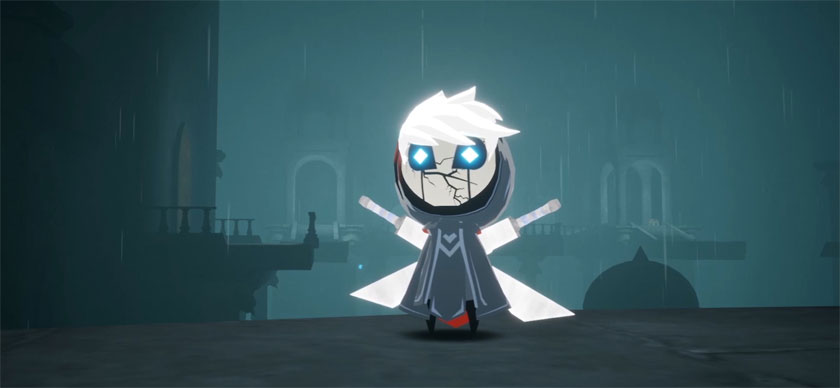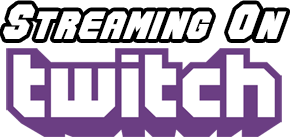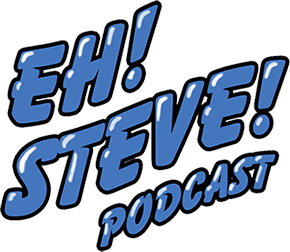Over-thinking Nonsense About Streaming and How One Presents Themselves

I learned a valuable lesson during this Monday’s stream: don’t try to discuss overly serious stuff while broadcasting.
Nothing personal, mind. I at least have enough sense not to discuss such matters as my family or overly detailed updates on my medical conditions. Nonetheless, self-consciously reflecting on doubts regarding one’s value as an entertainer is, well, not entertaining. Even if there were a worthwhile conversation to be had regarding what it takes or means to be entertaining while playing a game, it is unlikely to come about while driven not by a crisis of confidence instead of intellectual curiosity. In addition to the attempt to carry a discussion with oneself live on stream, the required concentration and constant interruptions of playing a game at the same time are bound to result in one awkward stream. The end result is a video-on-demand that you’re eager to see expire and vanish in the abyss of Twitch’s hungry maw.
Which is why I now transfer such thoughts to the blog, where I can more effectively focus my thoughts and how they are expressed. This is not, after all, the only thing I’ve pondered about myself while streaming. It is only the latest in a long line of observations and questions I’ve made of myself in this recent endeavor. The tone at which I speak, the manner in which I address friends and viewers, how I discuss the game I’m playing and its design elements; these are all factors I’ve pondered lately in terms of what makes an engaging, quality stream.
Curiously enough, it does not begin with Twitch itself, but the closing of my Facebook account.
Over the past couple of years I’ve been far more interested in providing positive content on my YouTube channel than negative. By this, I mean I’d rather be speaking enthusiastically about a game I love or, at the very least, find enjoyment in, rather than pointing out the endless number of flaws in a game that brought me frustration. Such videos have always been the most satisfying to make. Unfortunately, the past several years have consistently driven my mind into negative thoughts and depression, making it all the more difficult to put anything together at all.
One of the largest contributors to these downward mood swings was social media. Be it Twitter or Facebook, it was becoming increasingly difficult to browse these networks and not be witness to some confrontation or call to hatred. I became all the more nervous about speaking my mind, questioning nearly every statement that erupted from my mouth. I’d regret those rare instances where my emotions took control and I blurted out something in frustration.
I first closed my Twitter account in 2019, and then recently followed with my Facebook in mid-to-late 2020. Ever since, I’ve found myself feeling better, more confident, and less concerned with what others think. This is an improvement for my mental health and, as can be seen with the increased updates to this blog, productivity. However, as I began to realize in some of my Twitch streams, I began to lose some of my filter. I’d be more comfortable expressing opinions or making jokes that, to an outside observer, could paint an inaccurate picture of my character. In a moment of frustration with the game Salt & Sanctuary, I exasperatingly told my friend Nolan to shut up. Was his “git gud” comment not helping in that moment? It was not. Do I really want to be the sort of person that just tells their friend to shut up? No, I do not.

Upon reflecting on some of my behavior on stream, I realized the downside to my renewed confidence from leaving social media was a problematic comfort within my new bubble. No longer being worried what anyone thinks of me is not license to forego basic consideration of others.
To what end does this matter? Simply put, I believe I’ve always wanted to create something entertaining for others my whole life. Throughout my youth it was comic strips and stories. I would later daydream of the wonderful games I’d design while continuing to sketch out comics online. Throughout my adulthood, it has been writing essays that engage one’s mind through phrasing as much as subject matter, video essays whose scripts are as tightly edited and communicated as the visuals working in tandem, and a podcast that gives the listener the feeling of sitting at the bar with good friends discussing games or film. Streaming is simply the latest medium in which I seek to engage and entertain.
These endeavors are not merely self-indulgence on my part. I am sincerely interested in putting out a better, stronger product. I’ve developed a pretty solid understanding of how to craft a video, essay, or podcast that I can be satisfied with after working on each medium for almost – or more than – a decade. In terms of streaming, however, it is still largely fresh new territory. After all, it wasn’t until the pandemic that I had begun even watching other people stream.
My largest impression of the medium was over-the-top, insincere reactions to every occurrence, no matter how minor. Loud screaming, false enthusiasm, foul language that beckoned youth with promises of forbidden “naughty words”, and a complete absence of consideration for a game’s deeper mechanics. Whenever I tried to stream for Extra Life, I attempted to be the… I suppose “anti-streamer” makes little sense, as that would mean I simply did not stream. Rather than shout obscenities and yelp like a cartoon character, I struggled to look at the different aspects of a game’s design and discuss them fully and thoroughly. To effectively craft one of my more analytical videos on the fly and in real-time.
It was not very effective.
Not until my friend had begun streaming early in the pandemic did I begin to feel my way into what made the performance entertaining. Separated not only by distance but a quarantine, I sat in my pal’s chat while he played DOOM Eternal on a higher difficulty, engaged both by the banter shared and the gameplay displayed before me. It was like sitting in an apartment together, hanging out while he did his best to concentrate on the game, tolerating our jeers and disruptive commentary while occasionally tossing a verbal jab back. I felt my own fingers twitch and quiver, an invisible controller imagined within my hands, my enraptured mind witnessing the game before me and instinctively responding to the action. Shortly after I began to follow my fellow YouTubing comrade PostMesmeric’s streams of Persona 4 Golden, where I would often find myself engaged in conversation with both him and his chat.

Streams became a social activity, and in time I followed suit by broadcasting Bloodborne with my friend Nolan. As the months progressed I began to stream solo, learning to fill empty air by simply speaking my thoughts out loud.
Then I fell into what is often referred to as the “Hololive Rabbit Hole”. They were the first streamers I actively began to follow who were complete strangers. They also didn’t speak my native language. What made them so entertaining? What made them different from every other streamer I’d bounced off of? Aside from charisma and an abundantly jovial sense of humor, it was their sincerity. Every response to a game from these gals (and guys, once I also began to follow Holostars) felt earnest and genuine. Actual frustration, elation, and laughter. It never felt forced like most of the streamers I’d been exposed to.
Following some of these streamers had the benefit of encouraging me to dig deeper and figure out how to better put together a stream. I created an overlay, chose to go with a cartoon illustration rather than a camera, learned how to connect the streaming software with Discord to highlight each participant in the conversation, and more. Combined with handling the media booth at my Church, I’ve slowly begun discovering more about video streaming and audio equipment. I’ve developed skills that may not be directly related to my profession, but certainly have worthwhile application.
Despite all this, I still sat there on a Monday night, playing a game with very few viewers at the time, pondering out loud what it means to be entertaining. Going back through my own Twitch highlights, I’ve listened to myself try to be funny, listened to myself try to discuss deeper matters of game design, listened to myself try to be heard over my friends during a collaborative stream, and even heard myself tell my friend to shut up just because I was having a rough time. I listened to myself react with suspicion to a brand new viewer – a stranger – who asked if I wanted help with the game I was playing, rather than welcoming them to the stream as a good host would greet a guest to their home.
I wanted to think through this experience, these critiques of myself, and to express my desire to improve. That’s not what it sounded like, however. Part of it was due to constantly being interrupted by, y’know, playing the game. Even if I hadn’t broken my concentration, though, the core of my feeling was “I am losing my confidence”. That was what I was expressing, even if I wanted to dress it up as an intellectual exercise.

Streaming provided an excuse to not only get me drawing again, but to practice some Photoshop fundamentals in creating an aesthetically pleasing overlay that also didn’t look cheap.
So what is the point of this particularly over-indulgent essay, then? What do I seek to gain from laying out all of these thoughts in the open?
To recover my confidence and see things with a more level-headed perspective. I am putting way too much weight on my spoken words, which means I will over-think what comes from my mouth, and therefore that sincerity I value so much in other streamers will be lost. I wish to be positive still, to not be insulting, to make sure any criticism leveled at the game comes fair. However, that is a skill that will take gradual development. If I wish to discuss certain topics during a game’s downtime or before most of the viewers have jumped in, then I should write them down on a notepad ahead of time. Otherwise, I need not worry about it, as chat will often give me plenty to respond to and interact with.
Most of all, I need to realize that gameplay itself can be exciting and entertaining to watch. I should know this from the streamers I follow. Even when I cannot understand their language, it is often exhilarating enough just to watch them in an intense shootout or brawl in a video game.
I am sure there are more lessons that can be learned, but for now the greatest lesson is to not over-think what it is I’m doing in the moment. Yes, there are some things I could improve on. I’ve learned to think out loud up to a point. I’ll often quiet in mid-sentence, a plan formulating in my head, only to remain silent as I seek to execute my newfound mission. I should probably learn to explain what has occurred to me, to let the chat in on what I’m planning to do so that if it succeeds, they’ll understand my elation. If it fails, they’ll have the opportunity to mock me. A good time will be had by all.
This is not a whole change of character, nor is it forcing me to concentrate on something that isn’t the game I’m playing. It’s a simple adjustment to what I’m already doing.
Of course, I’m still figuring this whole “streaming” thing out, both in what I find entertaining and in what I feel comfortable doing. I may have a stronger idea of what my voice is or ought to be in terms of videos, essays, and podcasts, but streams are still new territory for me. Nonetheless, I feel confident that I can find my unique “voice”, just as I have with all the other content I produce. It is, after all, something I’ve grown to enjoy. Moments of self-doubt have done harm to nearly everything else I’ve worked on. I’d like to make sure this lone, social element of gaming I have left to me does not suffer similarly.


